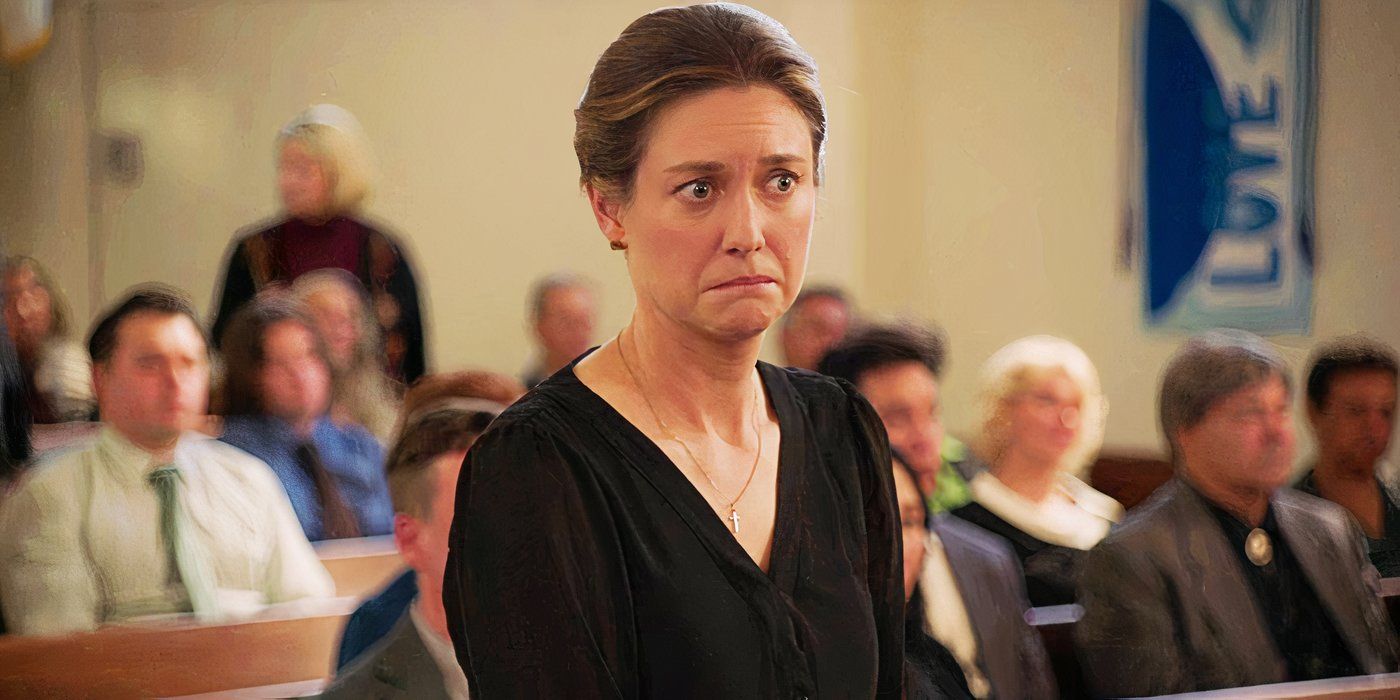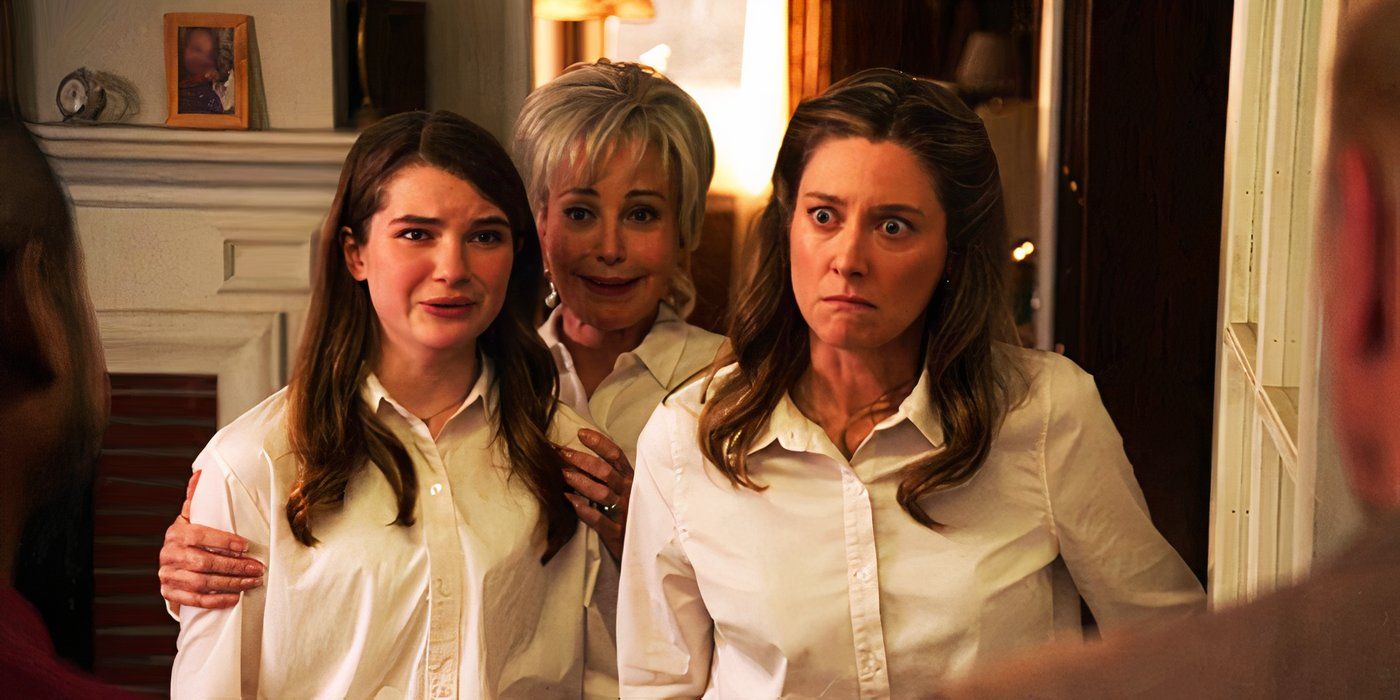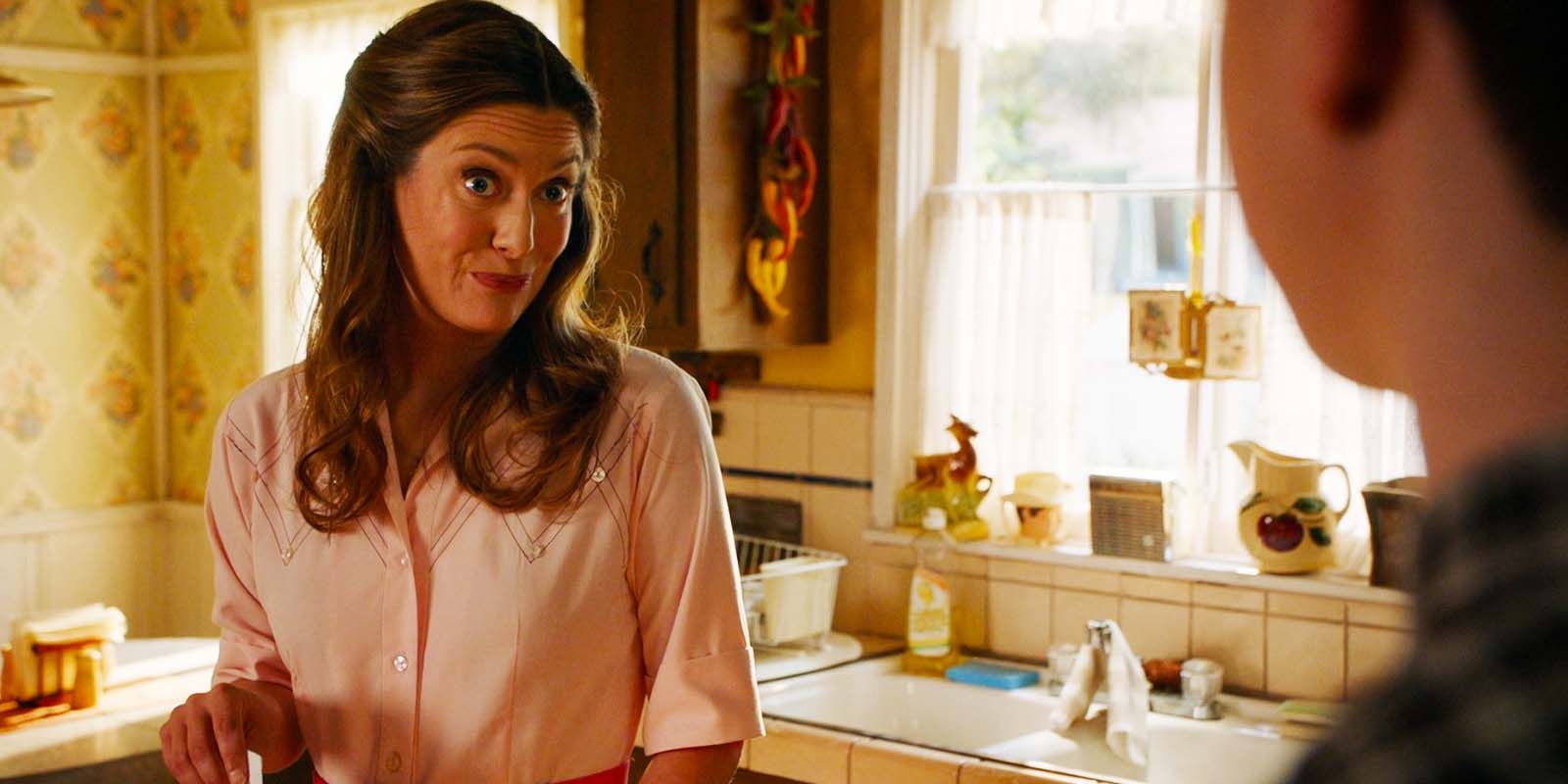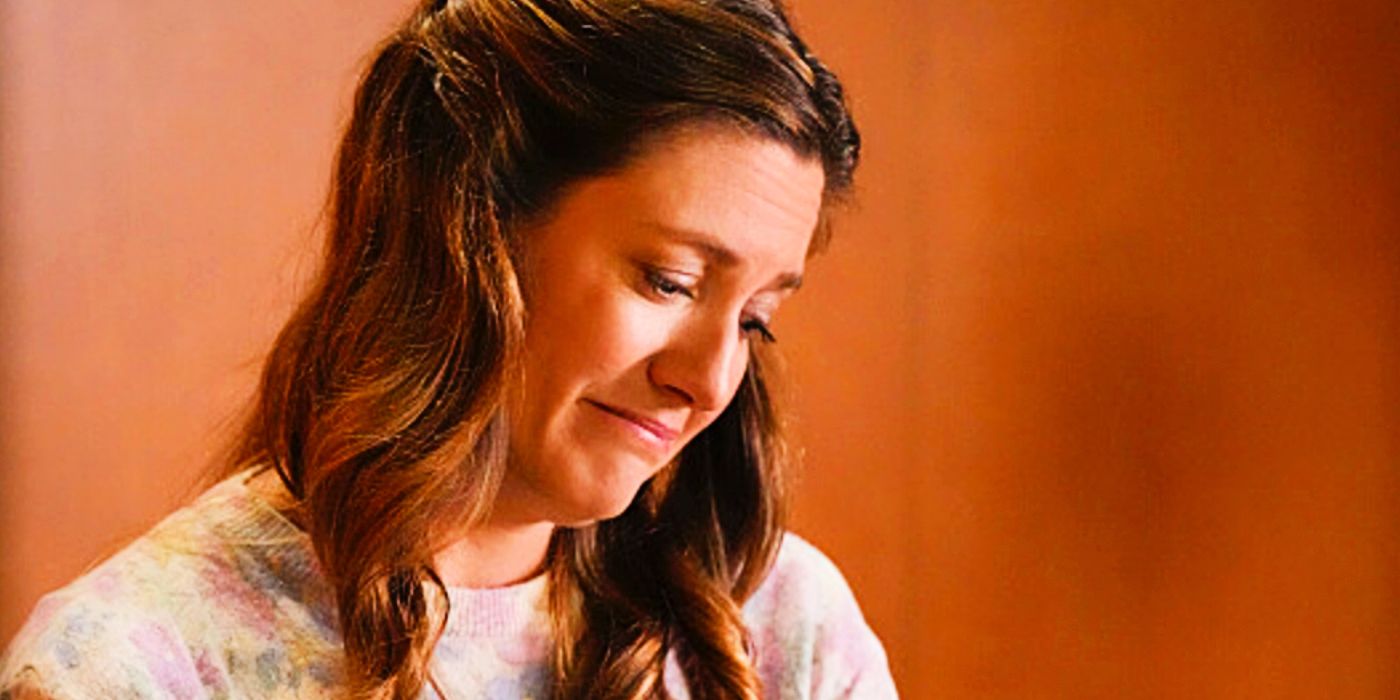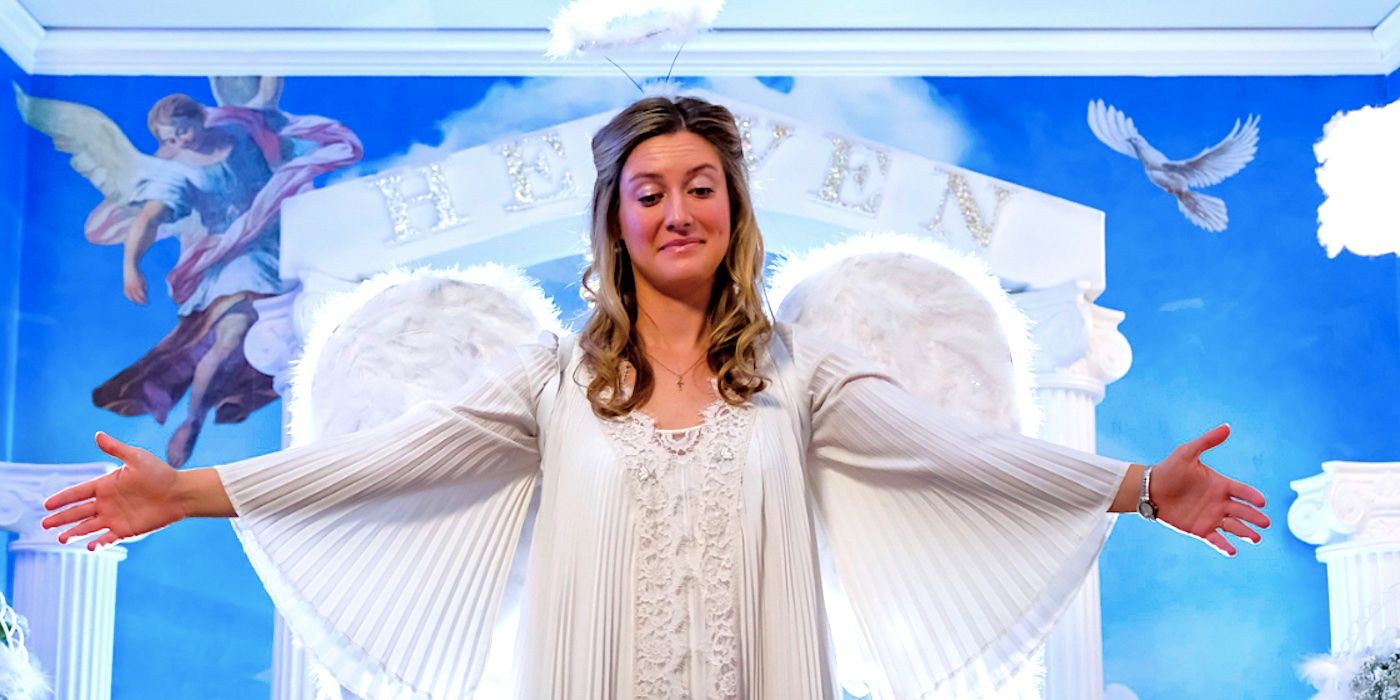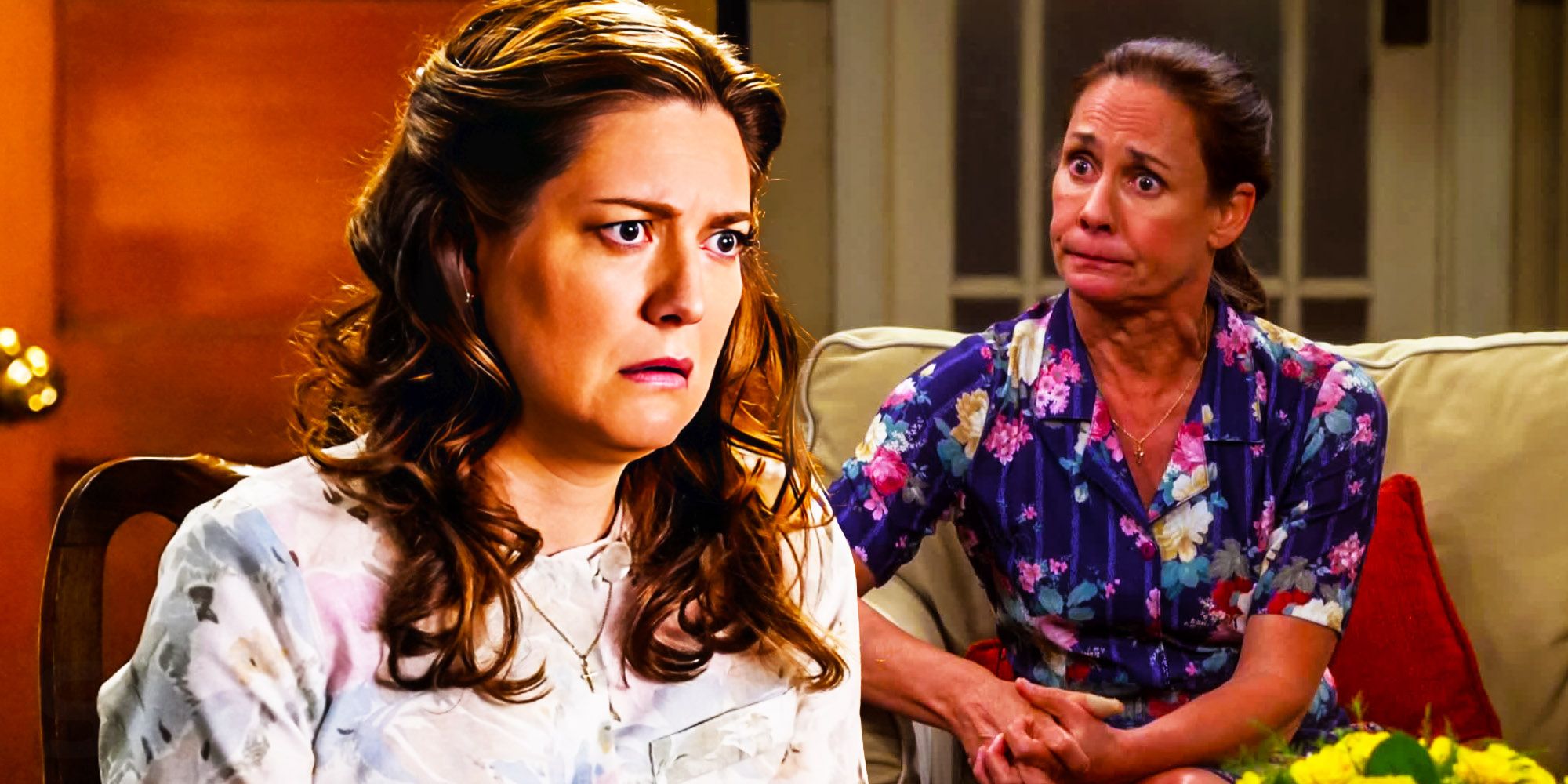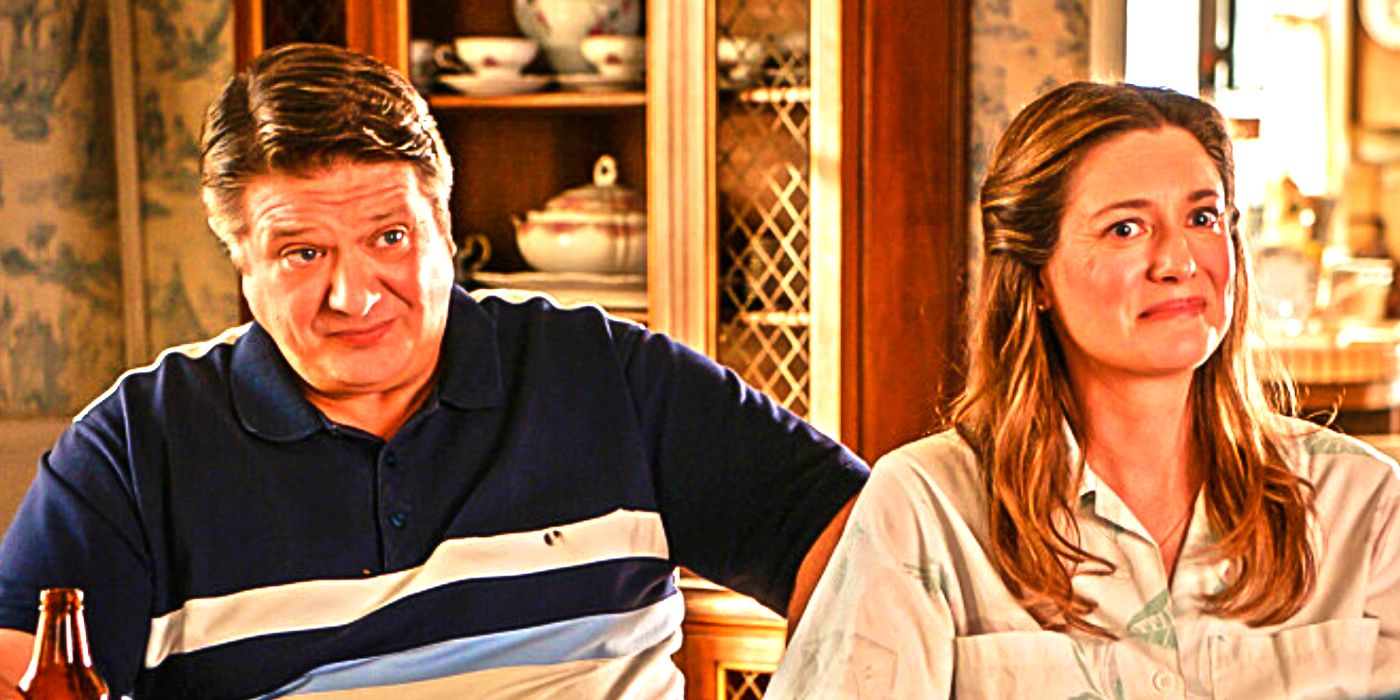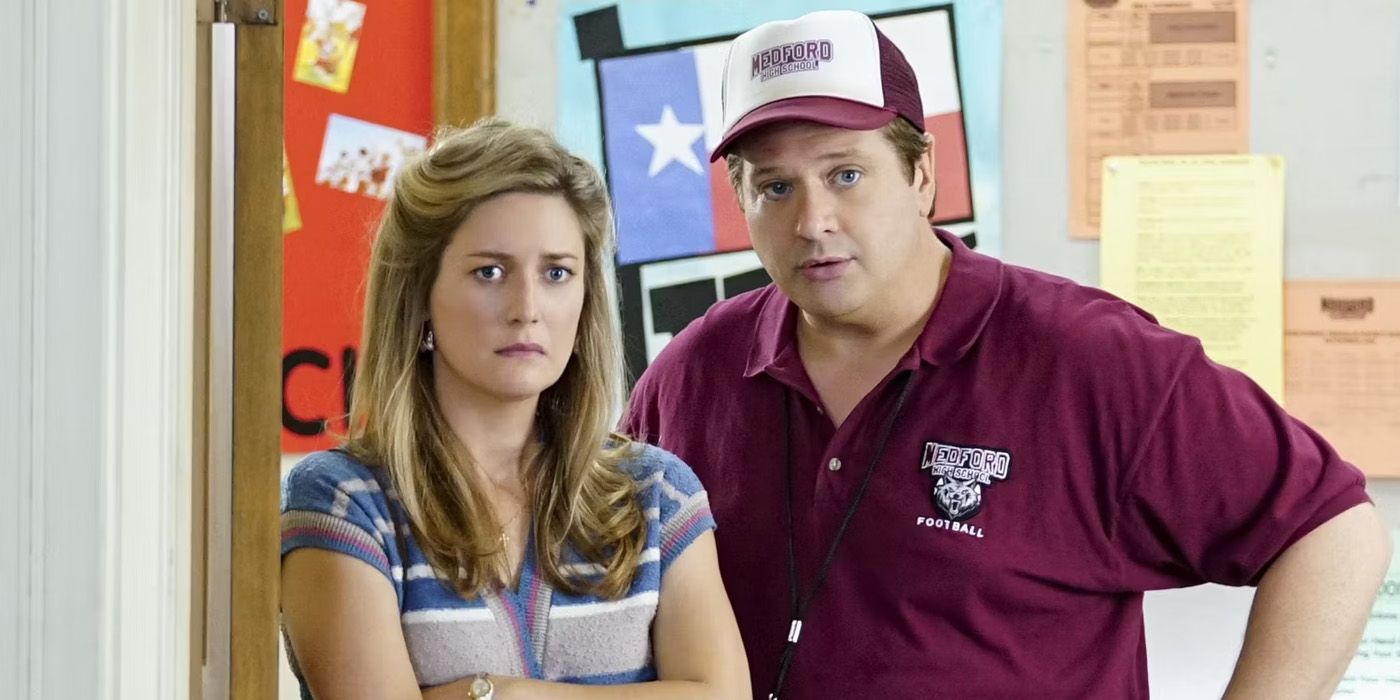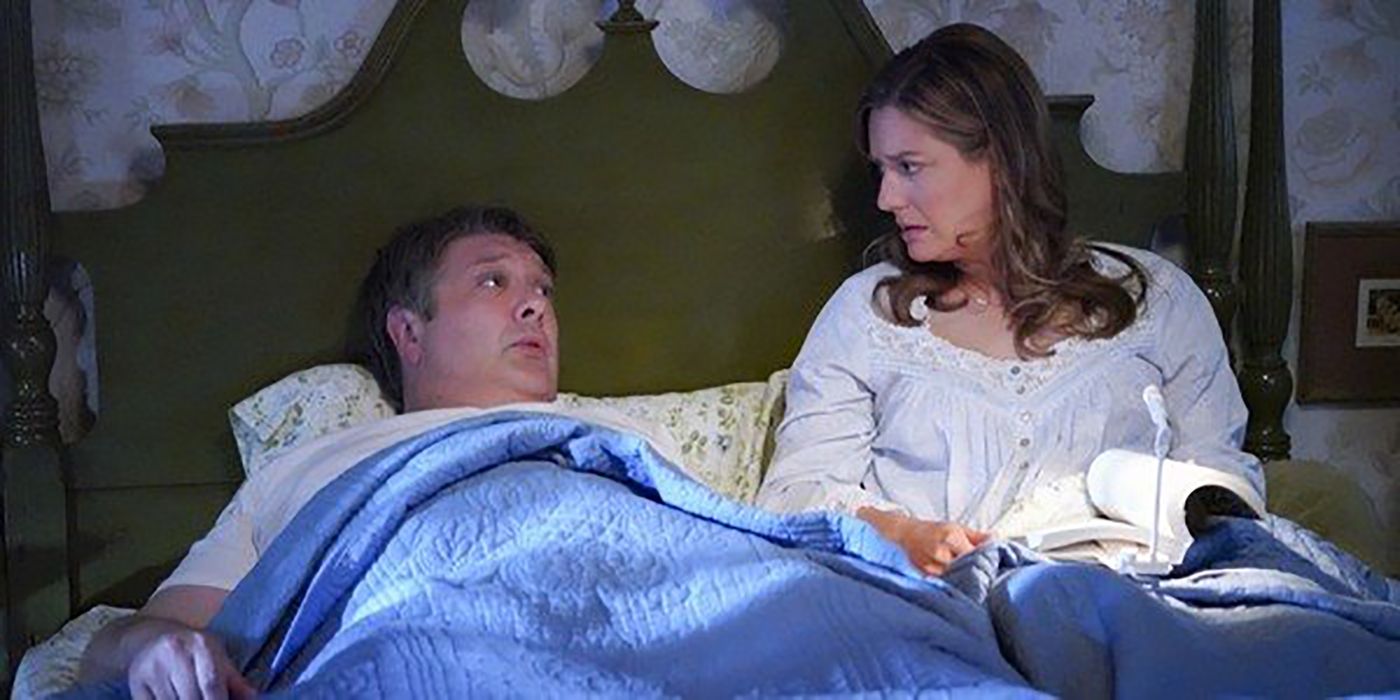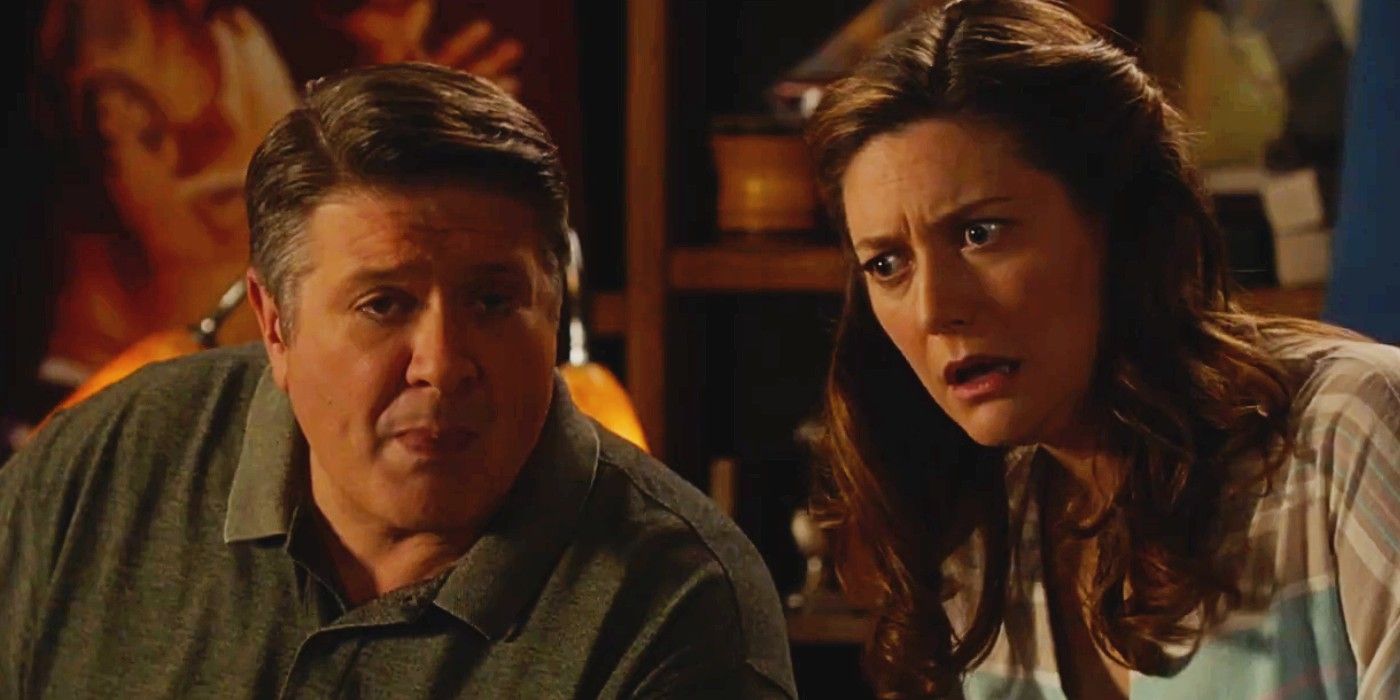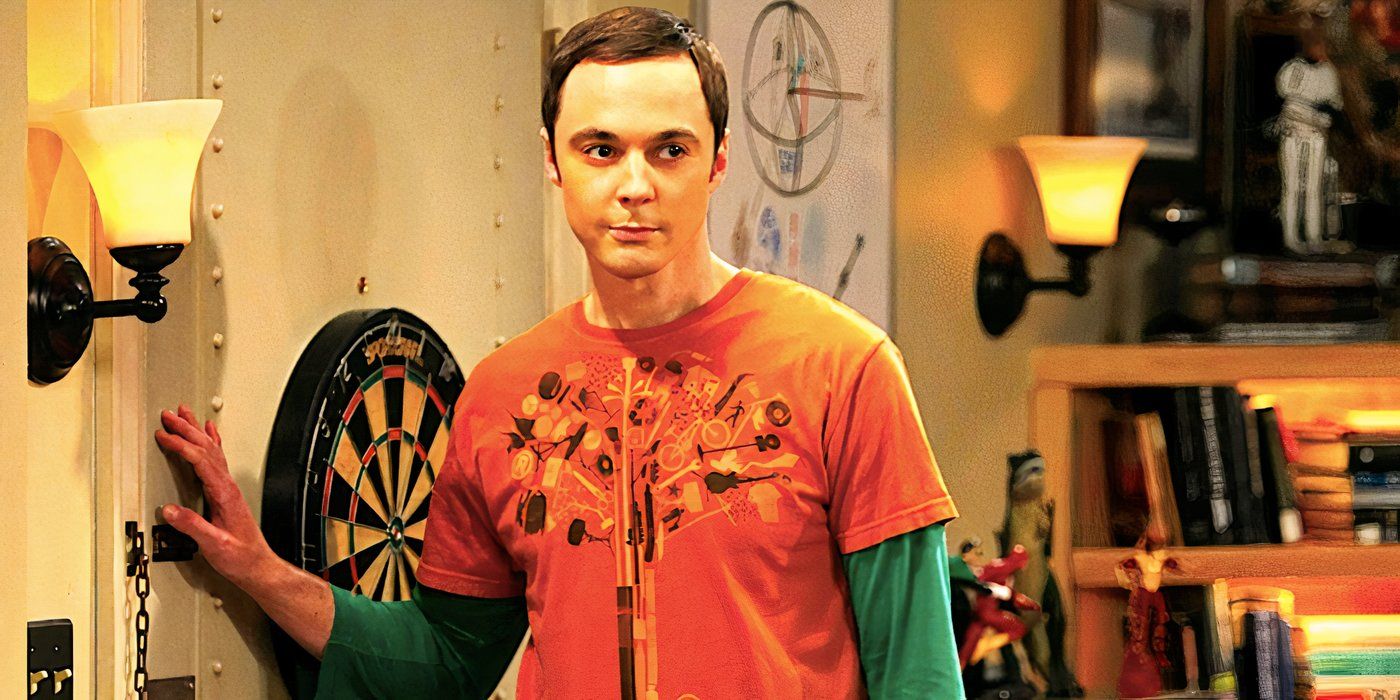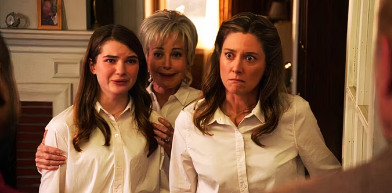
Mary recognized Sheldon’s fastidious honesty in Young Sheldon’s finale but didn’t realize how this quality made The Big Bang Theory spinoff’s ending even harder for him. Young Sheldon’s series finale proved that, while Sheldon had plenty of flaws as a father, he was a better son than he often seemed. Young Sheldon’s last three episodes centered on the untimely death of Sheldon’s father, George Sr, and the fallout from this tragedy. In “Funeral,” the Cooper family arranged George Sr.’s funeral as Sheldon struggled with reality in Young Sheldon‘s most ambitious episode ever. “Memoir” followed this episode.
In “Memoir,” an older Sheldon reflected on his youth and the loss of his father as Amy scolded him for failing to appreciate his own children. The episode’s main plot flashed back to the aftermath of George Sr.’s funeral when Mary’s intense religiosity began to drive a wedge between her and her children. Meemaw mistakenly believed that Mary’s newfound reliance on her faith would be temporary, resulting in her telling Missy and Sheldon to get baptized to appease Mary. In the process, Young Sheldon also revealed that Sheldon’s finale story was harder than it seemed for the show’s hero.
While Young Sheldon and The Big Bang Theory were both primarily comedies, the two hit sitcoms still managed to include a few major character deaths.
Mary’s Recognizing Sheldon’s Brutal Honesty Made His Baptism Even More Meaningful
Her Funeral Speech Was Shaped By Her Son’s Penchant For Honesty
Since Sheldon was someone who would call out his mother for fudging details during his father’s eulogy, then it was quite an achievement for him to ignore his disbelief in God and go through with a baptism to make her feel better.
In “Funeral,” Meemaw told Mary that she didn’t need to worry about her eulogy at George Sr.’s funeral, telling her to “Make stuff up” since no one would call her on it. Mary noted Sheldon would, leading to a very different, blisteringly honest eulogy. Mary pointing out that she couldn’t lie during her eulogy due to Sheldon’s intense honesty made his decision to get baptized for her sake a much bigger deal. Young Sheldon’s series finale proved Sheldon’s character quirks sometimes cost him dearly, and it was hard for the fastidiously honest Sheldon to get baptized as an atheist.
Sheldon’s atheism was often treated as a joke in Young Sheldon, where his stubborn reliance on science and logic often butts heads with his small-town community and his religious mother. However, Sheldon’s deep-held belief in honesty meant that he truly stood by his “Well-established atheism,” which makes his sacrifice for his mother all the more touching. Since Sheldon was someone who would call out his mother for fudging details during his father’s eulogy, then it was quite an achievement for him to ignore his disbelief in God and go through with a baptism to make her feel better.
Mary’s Young Sheldon Eulogy Was Her Most Honest Moment
The Big Bang Theory’s Mary Shined Through In “Funeral”
In Mary’s eulogy, it was finally clear how she became the woman viewers met in The Big Bang Theory . She seemed unable to reconcile the tragedy of losing George Sr. with her belief in a benevolent god to whom she devoted much of her life.
Young Sheldon’s finale made Mary’s prediction ironic since Sheldon ended up twisting the truth when he got baptized, despite his atheism, to help his mother’s grief. This didn’t align with his honesty, but Mary’s certainty that Sheldon wouldn’t stand for a dishonest eulogy was still ultimately beneficial. Young Sheldon’s series finale saw Mary give an unfiltered, righteously angry speech about losing George Sr. that was one of her character’s most harrowing moments, and Mary would never have given such a moving eulogy in front of friends, family, and neighbors if she didn’t think Sheldon would call her out for sugar-coating.
In Mary’s eulogy, it was finally clear how she became the woman viewers met in The Big Bang Theory. She seemed unable to reconcile the tragedy of losing George Sr. with her belief in a benevolent god to whom she devoted much of her life. Mary’s anger eventually calcified into the meanness she often displayed in the earlier show, meaning the spinoff explained her gradual character change with this scene. Since Young Sheldon ignored Meemaw’s character change in the finale, it was clever to use Sheldon’s well-established honesty as the conduit to reveal Mary’s shifting demeanor.
Honesty Was Central To Sheldon’s Big Bang Theory Appeal
Sheldon’s Honesty Was A Blessing And A Curse
Sheldon’s honesty was always central to the appeal of his character, as he was hilariously frank even when the situation called for some tact. However, this quality also made him uniquely likable in a naive, sweet way. In season 8, episode 16, “The Intimacy Acceleration,” Sheldon told Penny his birthday, something even Amy and Leonard never knew, simply because the pair were partaking in an intimacy experiment, and he knew the goal was to get to know each other better. Sheldon’s honesty was both a blessing and a curse, something that the final episodes of Young Sheldon effectively epitomized.
In “Funeral,” the fear of Sheldon’s honesty tripping her up led Mary to deliver a poignant eulogy that effectively established her entire Big Bang Theory character arc, explaining how she became so bitter over time. In “Memoir,” Sheldon’s reliable honesty was a hurdle for him to overcome so that he could support his mother. By pretending to believe in a religious ceremony’s importance, Sheldon could support Mary during a crisis of faith. The Big Bang Theory’s hero was more complex than he seemed, as proven by Young Sheldon‘s conflicting portrayals of his infamously blunt honesty.
